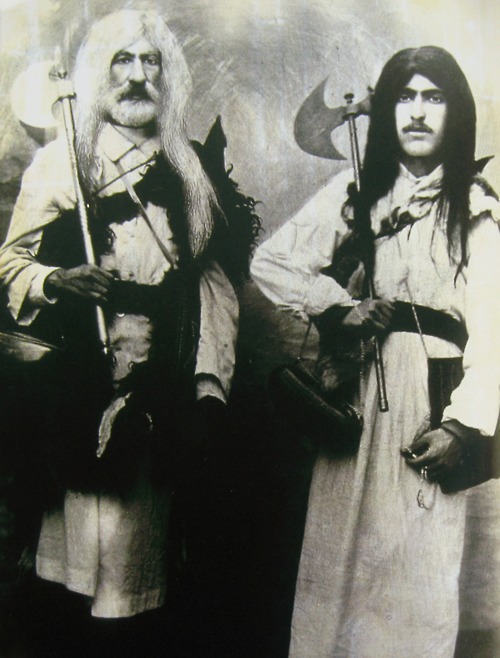Wikipedia defines a Dervish as
“someone treading a Sufi Muslim ascetic path or "Tariqah", known for
their extreme poverty and austerity.”
Rabbi Buchwald in an article for Re’eh 5773-2013, says
In this week’s parasha, parashat Re’eh, we learn of the Biblical
command that the People of Israel must destroy all vestiges of pagan
and polytheistic worship, whenever they are found.
The Torah, in Deuteronomy 12:2 reads, “You shall utterly destroy all
the places where the nations that you shall possess worshipped their
gods: on the high mountains and on the hills, and under every leafy
tree.” The Torah, in Deuteronomy 12:3, follows with specific demands
that the Israelites break apart all the pagan altars, smash their
pillars, and burn their sacred trees in fire. The idolatrous carved
images must be cut down, and the Israelites shall obliterate their
names from that place.
So if any form of idolatry is involved, it will be obviously forbidden.
This blog tries to explain “Chukas Hagoy”.
The Torah warns us to avoid “chukkat ha goyim” the “statutes of the
nations.” As a holy nation, separated by the unique discipline of the
Torah we are sternly warned to avoid gentile practices. The law is
complicated and this is just meant to be a quick review to expose my
thinking.
the prohibition, says Rashi, applies particularly to Non-Jewish
practices that reflect corruption, idolatrous superstitions or such
things as attending “theaters or stadiums.” We are told elsewhere that
the prohibition is on attending theaters and stadiums is one of the
first and few laws that a potential convert must be taught. This
refers to the Roman stadiums which were the site of violent gladiator
games. Jews were and are forbidden to enjoy entertainments which focus
on degrading human beings and torturing animals.
In general, these prohibitions distance Jews from things that are not
in keeping with Jewish values.
By contrast, the Shulchan Aruch (Yoreh De’ah), the most authoritative
code of Jewish law concludes that if the custom does not promote
idolatrous behavior and/or is viewed as a "dignified act", then no
such prohibition of "chukat HaGoy" exists. While there may yet be
other halachic prohibitions that would restrain a Jew from taking up
such a practice for themselves, there is surely no reason why we
should discourage others from following it. On the contrary, I believe
the obligations of Jewish spiritual citizenship may demand that we
encourage it. That is where my thoughts begin.
Being a Dervish does seem to have its origin in “ gentile practices”, (Sufi Muslim) and I suggest that there is not a tradition (for others than special individuals) of asceticism in Judaism; therefore it seems that these would be “things that are not in keeping with Jewish values”.

